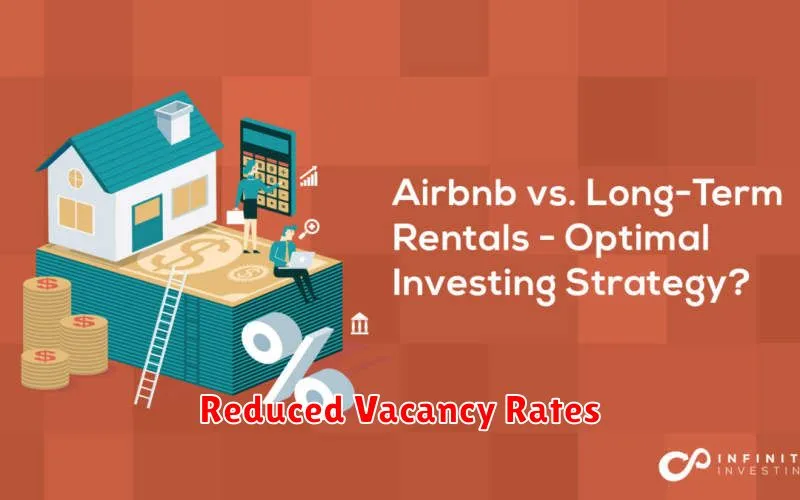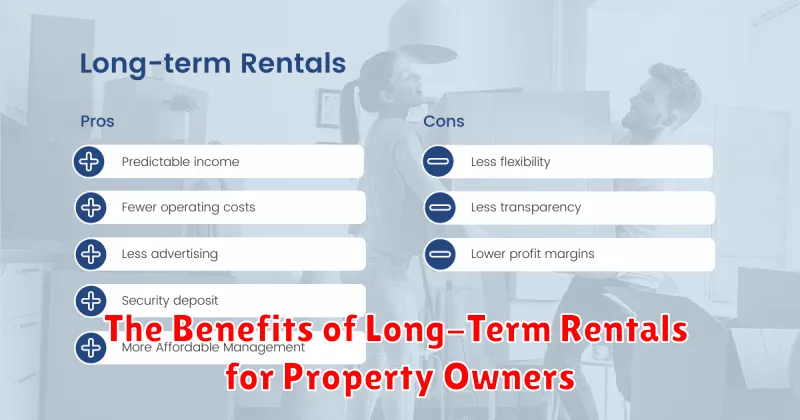Are you a property owner considering different rental strategies? Long-term rentals offer a compelling option with numerous advantages for maximizing your investment. From consistent cash flow and reduced vacancy rates to lower tenant turnover and simplified management, exploring the benefits of long-term rentals can provide valuable insights for making informed decisions about your property. This article will delve into the key advantages of long-term rentals for property owners, helping you understand why this strategy can be a powerful tool for building wealth and achieving your financial goals.
Compared to short-term rentals, the stability provided by long-term leases can be a significant draw for many property owners. Long-term rentals typically involve lease agreements of a year or more, providing predictable income and a more stable financial foundation. Beyond the financial benefits, long-term rentals can also simplify property management, reduce wear and tear, and foster a stronger sense of community within your property. Join us as we explore the compelling reasons why long-term rentals might be the ideal strategy for your real estate investment.
Stable Income Streams
One of the most significant advantages of long-term rentals is the predictable and consistent income they generate. With a lease agreement in place, property owners can rely on a steady stream of rent payments each month. This stability allows for easier budgeting and financial planning.
Long-term leases typically span a year or more, providing an extended period of guaranteed income. This contrasts sharply with short-term rentals, where vacancy periods can fluctuate and impact income flow. This consistent cash flow can be particularly beneficial for covering mortgage payments, property taxes, and other associated expenses.
Reduced Vacancy Rates

One of the most significant advantages of long-term rentals is the potential for reduced vacancy rates. Long-term leases, typically lasting a year or more, provide a stable and predictable income stream. This contrasts sharply with short-term rentals, which can experience fluctuating occupancy levels depending on seasonality and market demand.
With a long-term tenant in place, property owners can avoid the costs and efforts associated with frequent tenant turnover, such as advertising, screening, and cleaning. This stability translates into more consistent rental income and less administrative overhead.
Lower Maintenance Costs
One significant advantage of long-term rentals is the reduced burden of maintenance costs for property owners. With longer leases, the responsibility for minor repairs and upkeep often shifts to the tenant.
While landlords are still responsible for major structural repairs and system failures, day-to-day maintenance like replacing light bulbs, unclogging drains, or addressing minor appliance issues often falls under the tenant’s purview. This translates to fewer calls for service and lower overall expenses for the property owner.
Additionally, the reduced turnover inherent in long-term rentals minimizes wear and tear, leading to a longer lifespan for appliances and fixtures, further contributing to lower maintenance costs over time.
Stronger Tenant Relationships
Long-term rentals often foster stronger tenant relationships compared to short-term agreements. When tenants stay longer, a sense of community and stability develops. This can lead to increased tenant satisfaction and a lower turnover rate, saving you time and resources on frequent tenant searches.
Open communication is key to building these strong relationships. Regularly checking in with your tenants and addressing their concerns promptly can build trust and mutual respect. This proactive approach can lead to fewer issues arising and a more harmonious landlord-tenant dynamic.
Stronger tenant relationships can also translate into tenants taking better care of the property, viewing it more as their home. This can minimize wear and tear and contribute to the long-term value of your investment.
Easier Property Management
Long-term rentals offer significant advantages in property management compared to short-term options. With longer leases, owners experience reduced turnover, meaning less frequent cleaning, repairs, and marketing efforts. This translates to significant time savings and less administrative hassle.
Consistent rental income is another key benefit. Predictable payments simplify financial planning and budgeting. Furthermore, long-term tenants often take greater care of the property, leading to less wear and tear in the long run.
Tax Advantages for Long-Term Rentals
Long-term rentals offer several compelling tax advantages for property owners. Depreciation allows you to deduct a portion of the property’s cost each year, reducing your taxable income. You can also deduct operating expenses, including repairs, maintenance, property taxes, and insurance.
Furthermore, long-term rentals can qualify for advantageous capital gains treatment when the property is eventually sold, potentially minimizing the tax burden on your profits.

